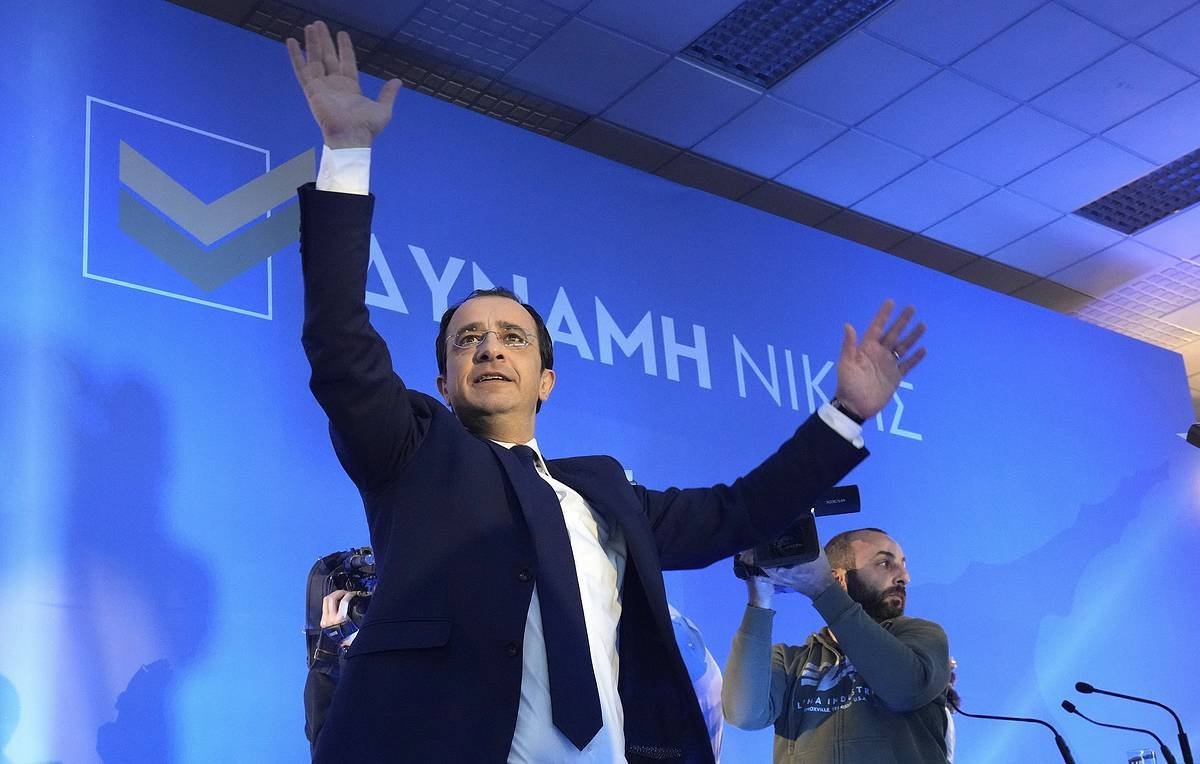Nikos Christodoulides Elected Cyprus’s President With 52% of Vote – Nikos Christodoulides, a former foreign minister, has been chosen as the eighth president of Cyprus after a highly competitive and closely contested election, defeating the veteran diplomat Andreas Mavroyiannis. At the age of 49, Christodoulides emerged victorious, securing 51.92% of the vote compared to Mavroyiannis’ 48.09%, who was supported by the leftist political party AKEL.
Only a mere difference of 15,041 votes separated the winner from the loser. “Tonight a long but beautiful journey has come to an end,” said Mavroyiannis, a former chief negotiator in peace talks with Turkish Cypriots, conceding defeat. “It gave me the opportunity to meet thousands of people and hopes and dreams for our country.” The result was immediately met with jubilation by supporters of the new president, as fireworks lit up the Nicosia sky and supporters clapped and danced.
People Also Read: Moldovan PM Resigns Blaming Crises Caused by Russian Aggression
For many his victory dashed hopes of a solution being found in the near future to the decades-long dispute that has left Cyprus, the EU’s most easterly state, bitterly divided. “Today Greek Cypriots have voted in a government with very nationalist tendencies,” said Cleopatra Kitti, a Cypriot policy adviser at the Athens-based thinktank Eliamep. “It is unlikely to back a bi-communal, bi-zonal federation any time soon which means this is likely to be another wasted opportunity.”
One week after Christodoulides emerged as the front-runner in the first round of the election, the election took place. The two candidates were also pitted against Averof Neofytou, the leader of the center-right DISY, which had been in power for the past 10 years. This marked the first time DISY, the largest political force in the recognized republic of the island, failed to advance to a run-off. This defeat was largely attributed to Christodoulides, who defied the party line by announcing his candidacy and breaking ranks.
Despite leading figures in DISY indicating they would support Mavroyiannis, the party’s failure to officially endorse either candidate created an open race. “The outcome is down to conservative voters being unable to overcome the ideological barrier of voting for an AKEL candidate,” said Christoforos Christoforou, a leading analyst specialised in electoral behaviour.
“Fears over AKEL’s management of the economy are also clearly still very real,” he added, referring to the island’s banking crisis a decade ago, which has been widely blamed on the disastrous handling of the economy by the leftwing then president, Demetris Christofias. Since the 1974 Turkish invasion, Cyprus has been divided into two ethnic groups, with Greek and Turkish Cypriots residing on either side of a ceasefire line monitored by the United Nations.
The invasion took place after a coup orchestrated in Athens aimed to reunify the island with Greece. Over the years, attempts at reunification have consistently fallen through. As memories of harmonious coexistence fade rapidly, the election has been considered the most crucial since 1960, when the former British colony gained independence. Analysts noted that while Mavroyiannis likely would have had a more accommodating approach, Christodoulides has demonstrated a desire to restart negotiations.
People Also Read: Peru’s President Renews Call for Elections This Year to Bring End to Protests
During his campaign, he indicated that Cyprus might back Turkey’s aim to enhance its Customs Union with the EU and offer visa-free travel for Turkish citizens within the bloc in exchange for Turkey allowing access for Cyprus-flagged ships through a port. “If the EU is smart it will work on that suggestion because it could break the logjam,” said Fiona Mullen at the Nicosia consultancy Sapienta Economics.




